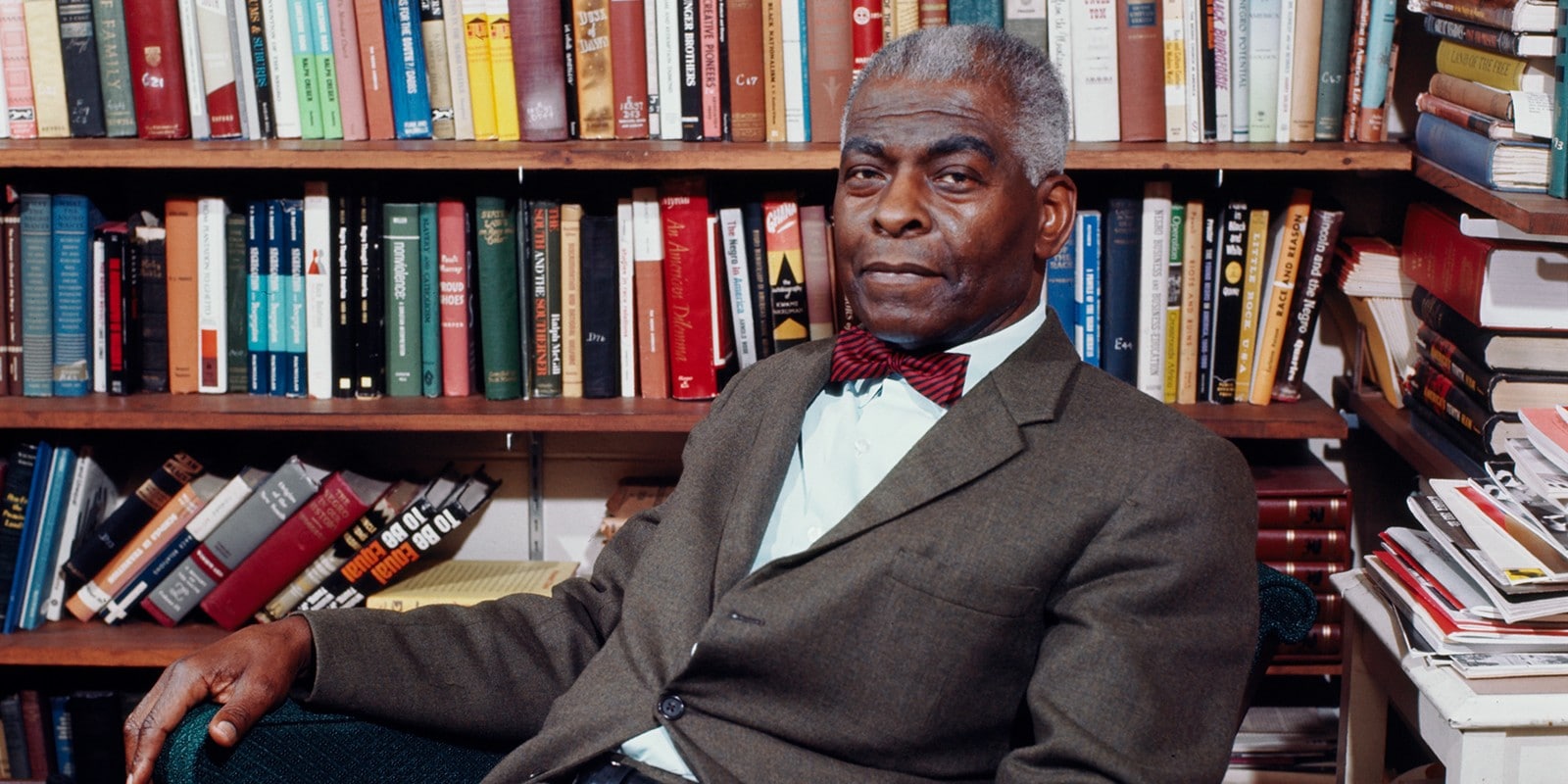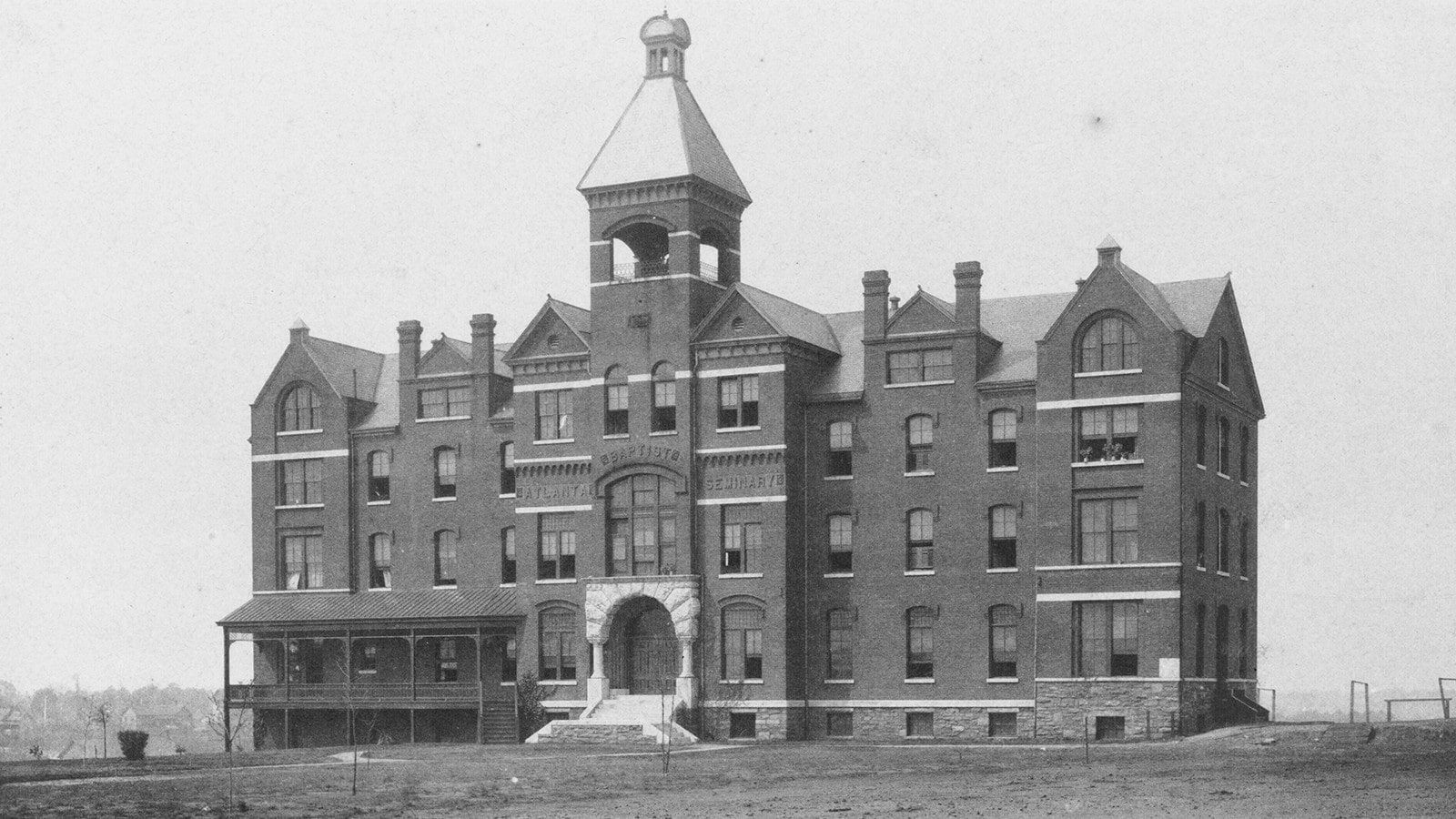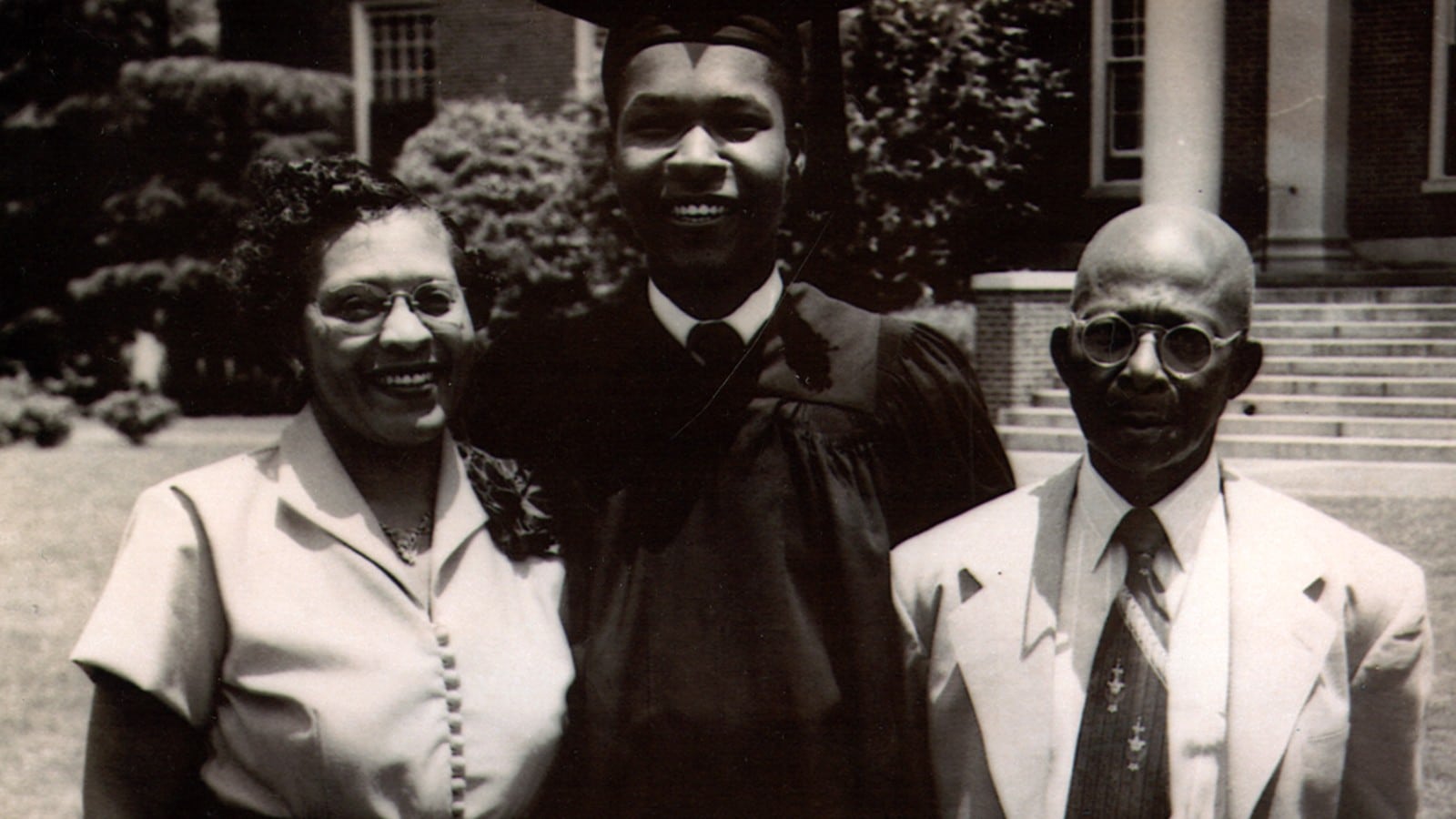Atlanta in 50 Objects
A pink pig and a renegade cow. A movie prop and a Coke bottle. A Pulitzer Prize–winning book and a Nobel Prize–winning icon.
How do you tell the story of Atlanta in 50 objects? We decided the best experts were Atlantans themselves—residents who cheer the Braves and rue I–285 rush-hour traffic, who understand how Civil War losses and Civil Rights victories together helped forge the city’s unique identity. Atlanta History Center asked the public to submit what objects they think best represent their town. The parameters were broad: an object could also be a person, a place, an institution, or an idea. After receiving hundreds of submissions, History Center staff assembled a collection of fifty pieces that represent the themes identified by the public. In addition to items from our own collections, we have partnered with many local institutions and individuals to gather artifacts from around the city to tell this community–driven story.


Morehouse College
Between the end of the Civil War and the turn of the century, Atlanta became home to several of the nation’s most important historically black colleges and universities, including Atlanta University, Clark University, Spelman College, and Morehouse College.
Morehouse is the only all-male African American college in the United States. Founded in 1867 as Augusta Institute, the school relocated to Atlanta in 1879 and after several name changes became Morehouse College in 1919. Dr. Benjamin Mays was perhaps the best known and most influential president of Morehouse, expanding the school’s academic reputation during his tenure from 1940 to 1967.
In the first part of the twentieth century, Morehouse, along with Spelman, were symbols of hope and inspiration to Southern African Americans. Over time, they had a profound effect on the quality of leadership in Atlanta’s black community. Morehouse produced many famous and influential graduates, including Dr. Martin Luther King Jr., Julian Bond, Maynard Jackson, Spike Lee, Samuel L. Jackson, Edwin Moses, former Surgeon General David Satcher, and Dr. Louis W. Sullivan, who was appointed Secretary of Health and Human Services by President George H.W. Bush in 1989.
Header Image: Dr. Benjamin E. Mays as President of Morehouse College mentored many future leaders in the Civil Rights Movement including Martin Luther King Jr., ca.1975. Courtesy of Joe McTyre Photographs Kenan Research Center at the Atlanta History Center

Atlanta Baptist Seminary, later known as Morehouse College, west of downtown, ca. 1895. Kenan Research Center at Atlanta History Center.

Dr. Louis W. Sullivan flanked by his parents on the occasion of his graduation from Morehouse College, 1954. Courtesy of Dr. Louis W. Sullivan